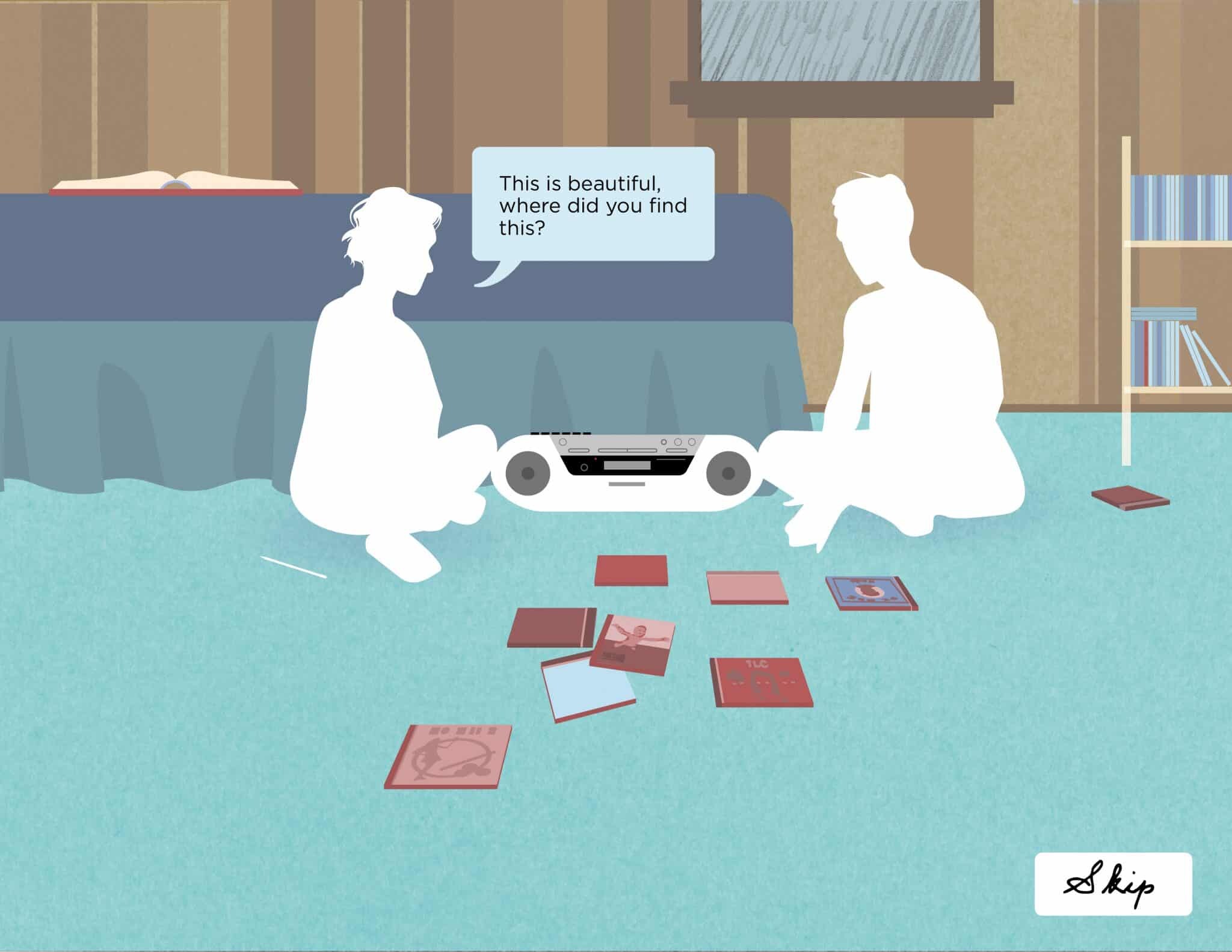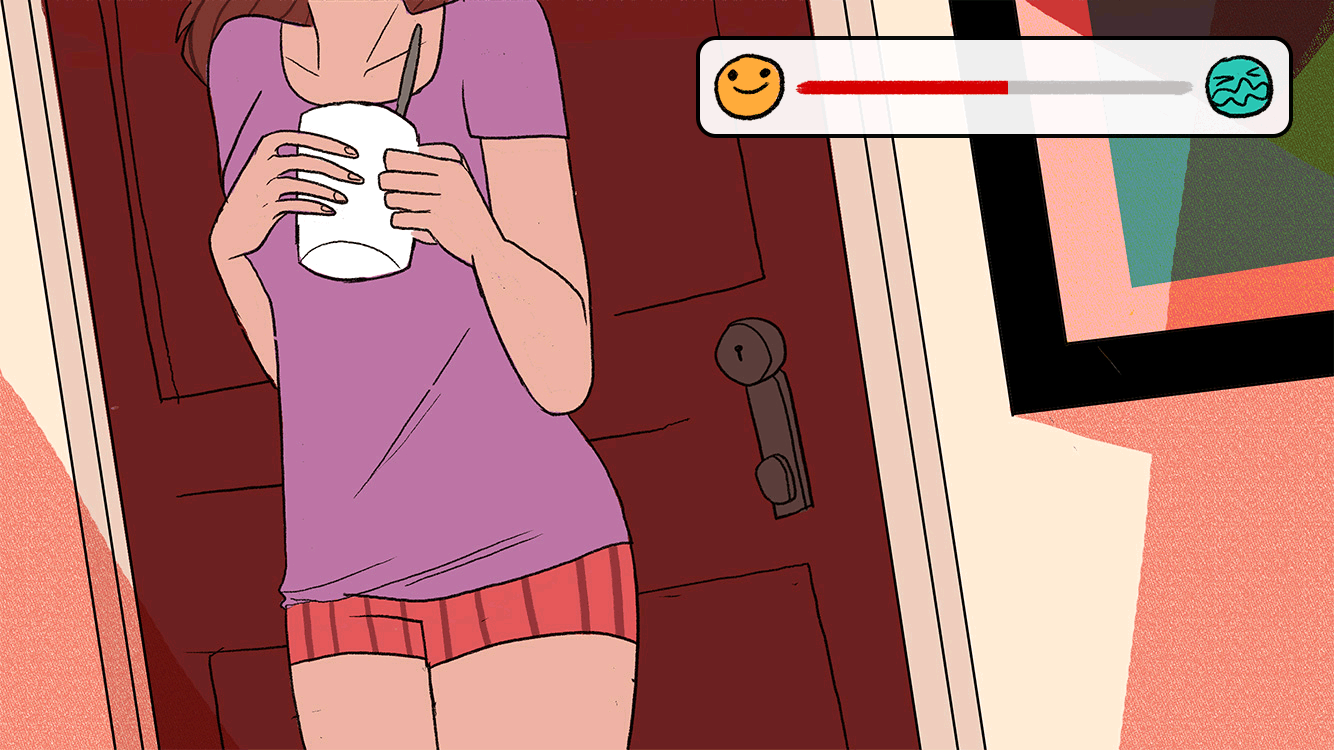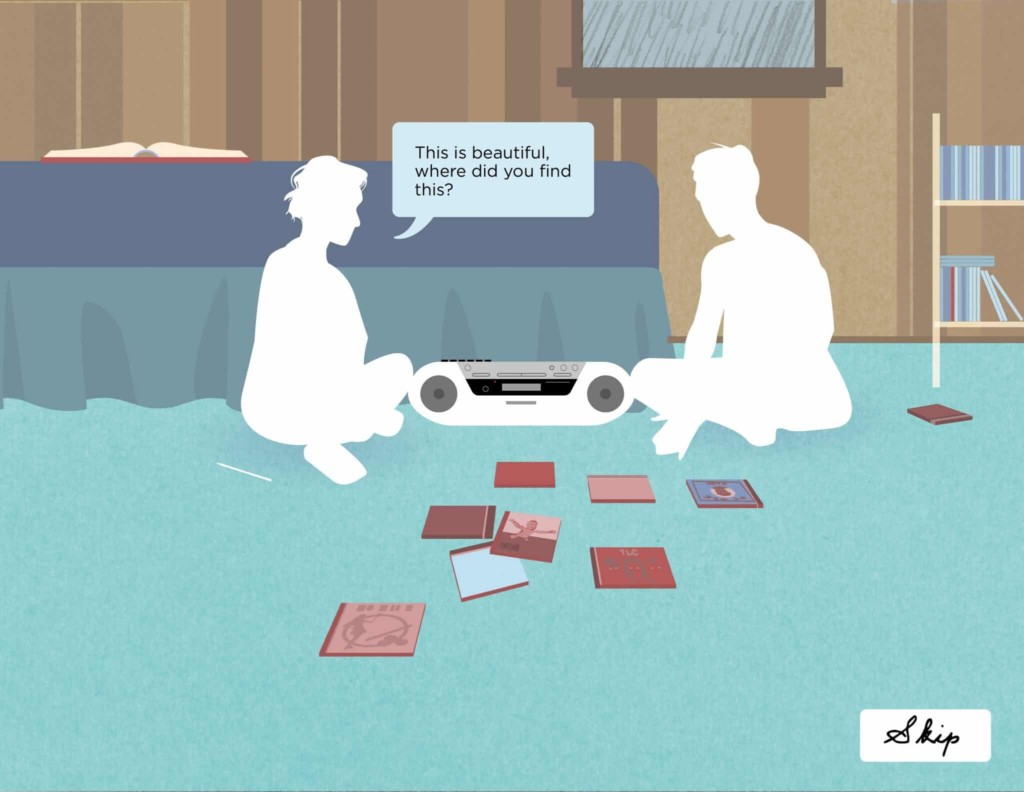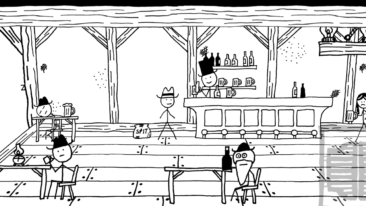IndieCade 2016, like previous years’ events, had a lot on offer. Unorthodox game interfaces were present, as always – see the sewing machine-based strategy game Threadsteading or the edible The Order of the Oven Mitt. There were also a number of offerings that blended theater, LARP and games, like Bad News or the van-based, avant-garde Shakespeare adaptation Hamlet-Mobile, both of which were festival award-winners.
For me, though, the biggest stand-outs were video games that managed to effectively – and affectingly – simulate seemingly mundane experiences. These ranged from the pastoral Lieve Ome, in which players experience game developer Florian Veltman’s forest mushroom-gathering walks with his grandmother, to the more controversial You Must Be 18 or Older to Enter, a recreation of the experience of a young person first experiencing “adult content” online.
Some of my favorite “ordinary life” simulators at IndieCade 2016:
Overdose
by Team Overdose

Developer Jen Allaway attempts to convey the experience of managing chronic illness via heavy duty pharmaceuticals – and their associated side effects – through a psychedelic, color-shifting mobile game. While the difficulty curve in this fast-paced touchscreen-clicker is still being adjusted, the narrative interludes are compelling and evocative of the constant stress of dealing with long-term illness.
This Is My Memory of First Heartbreak, Which I Can’t Quite Piece Back Together
by Jenny Goldstick, Owen Roberts and Stephen Betts

Exploring the memory of a relationship breaking up, Jenny Goldstick’s autobiographical offering recalls both Three Fourths Home for its horizontal inertia and Cibele for its almost voyeuristic look at modern relationships.
Emotionally intense – almost too much so for IndieCade’s festival atmosphere – this offering’s visual approach draws on graphic art and comic strips like Herriman’s Krazy Kat. Click individual objects in each scene to reveal nostalgic reminiscences.
The Average Everyday Adventures of Samantha Browne
by Lemonsucker Games
Walking down the hallway to make instant oatmeal? What could be more prosaic? Yet Andrea Ayres Deets delivers the premise with so much pathos and humor – the complicating factor is that the game’s protagonist is a graduate student with severe social anxiety and the objective at the end of the hallway is a communal kitchen – that it ended up being one of my favorite games at the festival.

For the record, I failed in my attempt. The mug in which I made my oatmeal was too hot, and I dropped it on the floor. People stared. It was traumatic.



